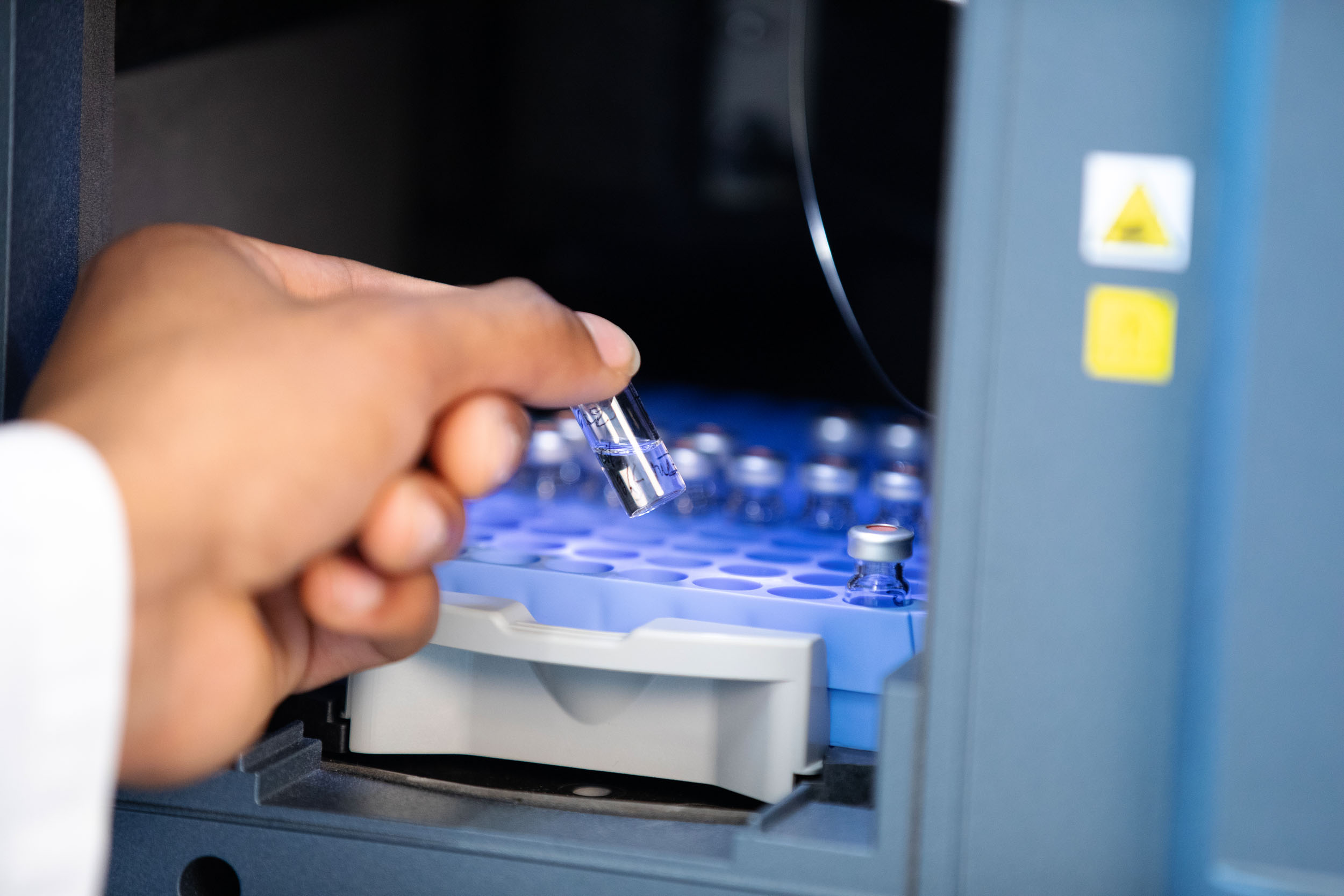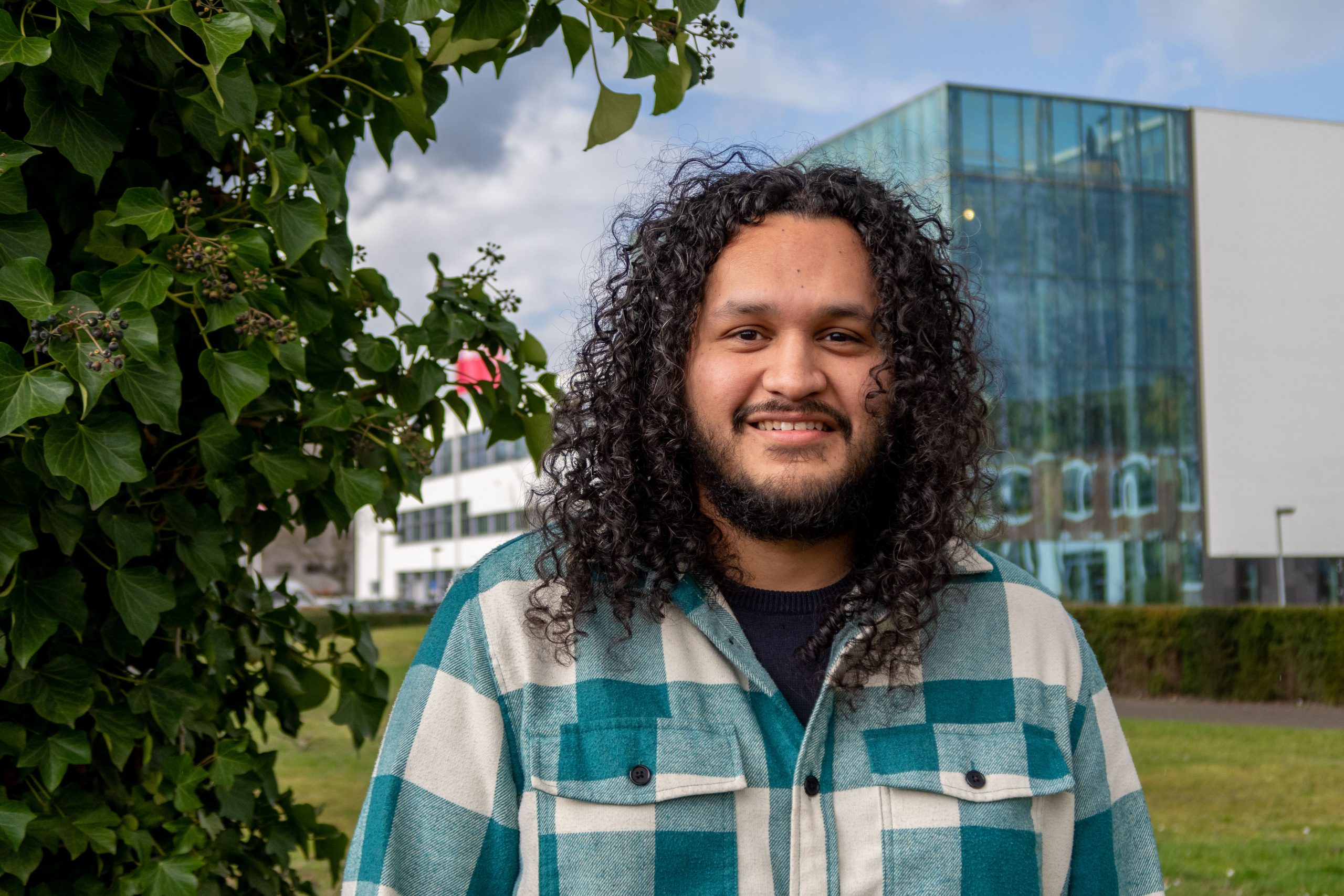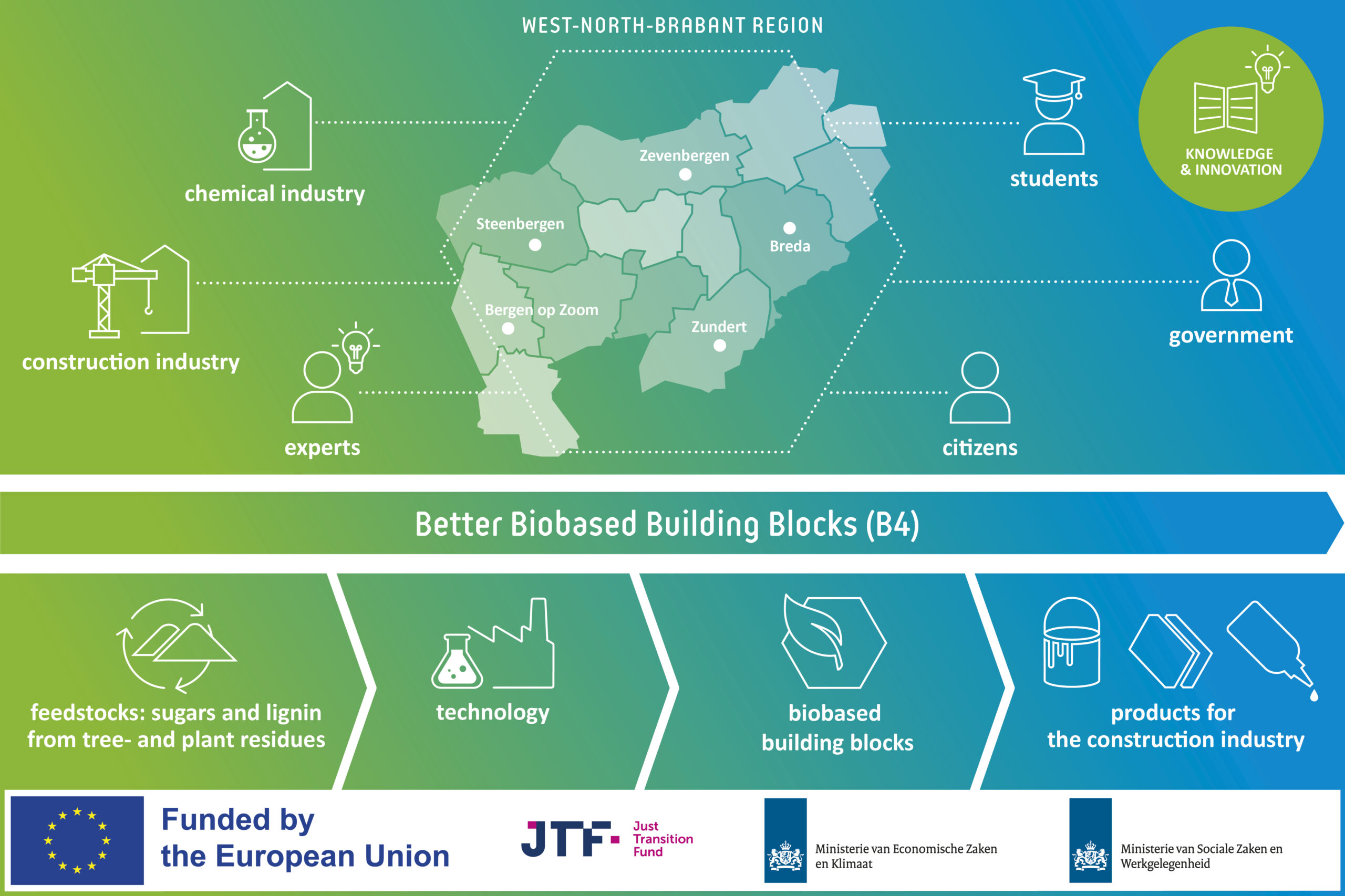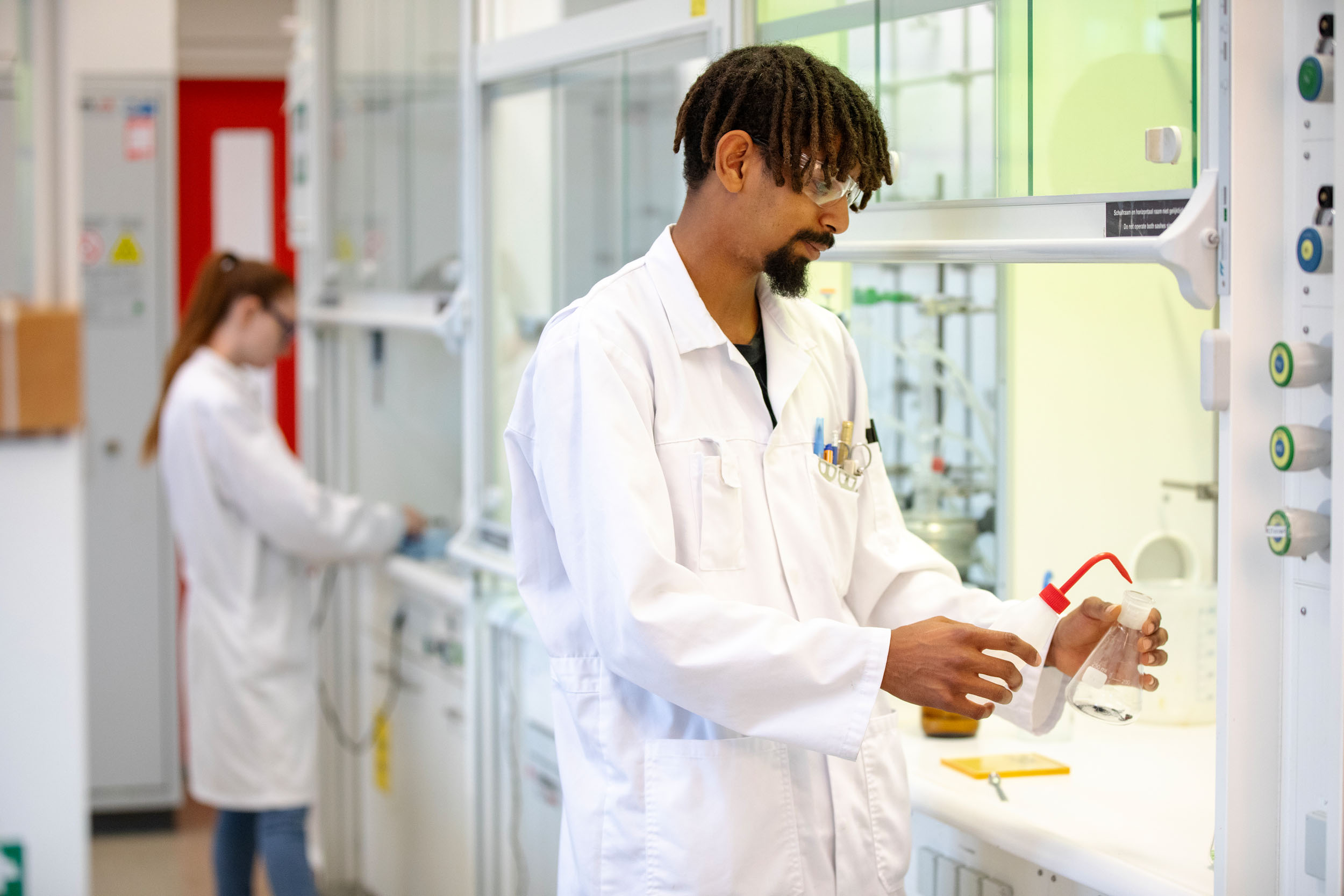Promising Biopolymers
Together with Biotactical, studio Gydiar, and the Centre of Expertise Perspectief in Gezondheid at Avans University of Applied Sciences, MNEXT is investigating which biobased polymers (bioplastics) could be technically and functionally suitable as alternatives to conventional plastics. The project team is mapping the current state of the art, selecting promising biopolymers based on availability and applicability, and identifying the key technical challenges for use in this specific biomedical context.
The selected materials are tested at the Biopolymer Application Centre of MNEXT, where they are processed into test samples through injection molding. These samples undergo a range of tests, focusing on properties such as chemical resistance, thermal stability, and mechanical strength.
Proof of Concept
The intended outcome of the project is a proof of concept: a functional microtiter plate made from a biobased polymer that can serve as a more sustainable alternative to conventional fossil-based plastics. If results are promising, the project aims to scale up to a follow-up phase involving the entire value chain — from material producers to end users — contributing structurally to the sustainability of the biomedical industry.
This project is funded by the PreSeed Fund of Avans University of Applied Sciences, which supports small-scale, multidisciplinary research projects and lays the groundwork for larger collaborations and innovations.
November 2024 until August 2025










